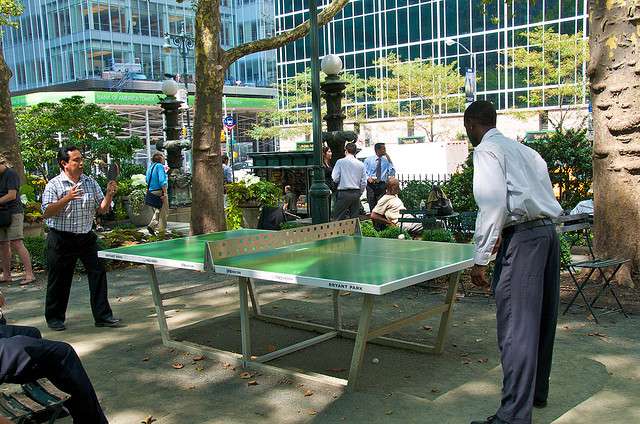Lunchtime exercise increases worker enthusiasm

While finding 30 minutes of exercise each day is preferred it seems walking for 30 minutes just three times a week is enough to boost workers' feelings of relaxation and enthusiasm and reduces anxiety, research shows.
While links between mood and exercise have been previously recognised, a new Australia-UK study led by Curtin University Associate Professor Cecilie Thøgersen-Ntoumani provides unique 'real-time' evidence.
Her team asked participants to report their moods immediately after trekking via mobile phone surveys, offering more accurate data than previous studies which relied on participants trying to remember their moods retrospectively.
"It is well known that our current state of mind can bias our memories," A/Prof Thøgersen-Ntoumani says.
"Individuals tend to have trouble recalling the intensity or frequency of particular affective states.
"By using an approach that allowed us to measure emotions in real time, we eliminated any potential influence of response bias."
The researchers also had walk leaders to take attendance for the 10-week sessions, overcoming another limitation of self-reporting, where participants might not recall, or might feel obliged to report, that they had exercised.
Walk leaders also helped motivate walkers, who could choose their own pace and level of social interaction.
Sedentary uni workers considered in study
Overall, the study involved 56 university staff members, almost exclusively women (54), all of whom were categorised as 'physically inactive'.
They provided 1377 mobile phone responses, completing two-thirds of the walks.
When compared to control data from weeks when they didn't walk, the trekkers showed greater levels of enthusiasm and relaxation at work in the afternoon, and less nervousness.
"A 30-minute group walk appears to have stress-reducing properties in physically inactive employees," A/Prof Thøgersen-Ntoumani says.
However, results were inconsistent as to whether the additional exercise increased fatigue.
Participants who took part in winter (February) reported feeling slightly more tired, while the spring (May) cohort showed no change in energy.
The researchers say this is due to seasonal variation, citing research showing self-ratings of increased fatigue are more likely in cold and dark conditions.
A/Prof Thøgersen-Ntoumani says the study's focus on 'physically inactive' workers increases its public health impact, as this group has the greatest risk of ill health.
"The increase in sedentary jobs requires innovative solutions to help get employees more physically active at work," she says.
"The public health implications of identifying effective interventions for those who are greater risk of disease, obesity, mental health problems and other conditions are important."
More information: "Changes in work affect in response to lunchtime walking in previously physically inactive employees: A randomized trial." Scandinavian Journal of Medicine & Science in Sports. doi: 10.1111/sms.12398


















